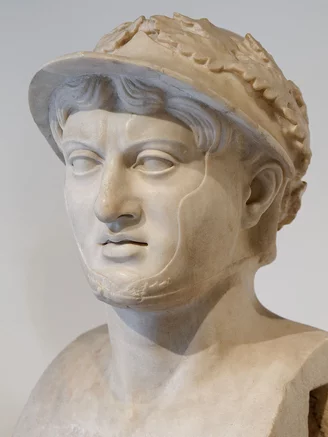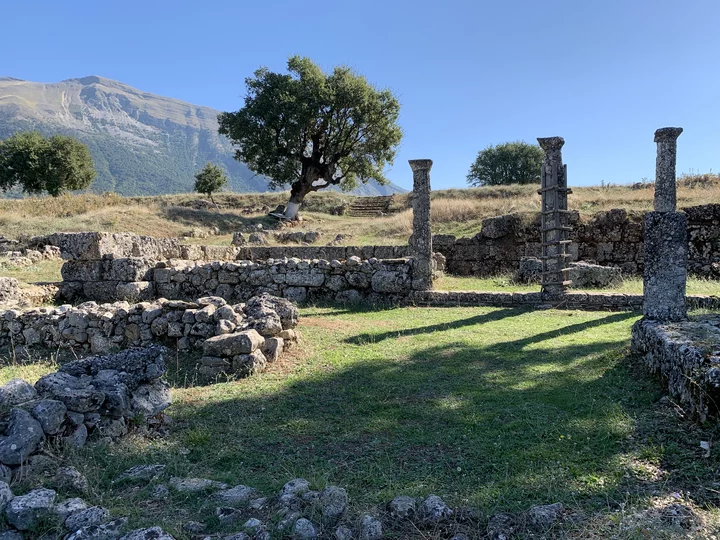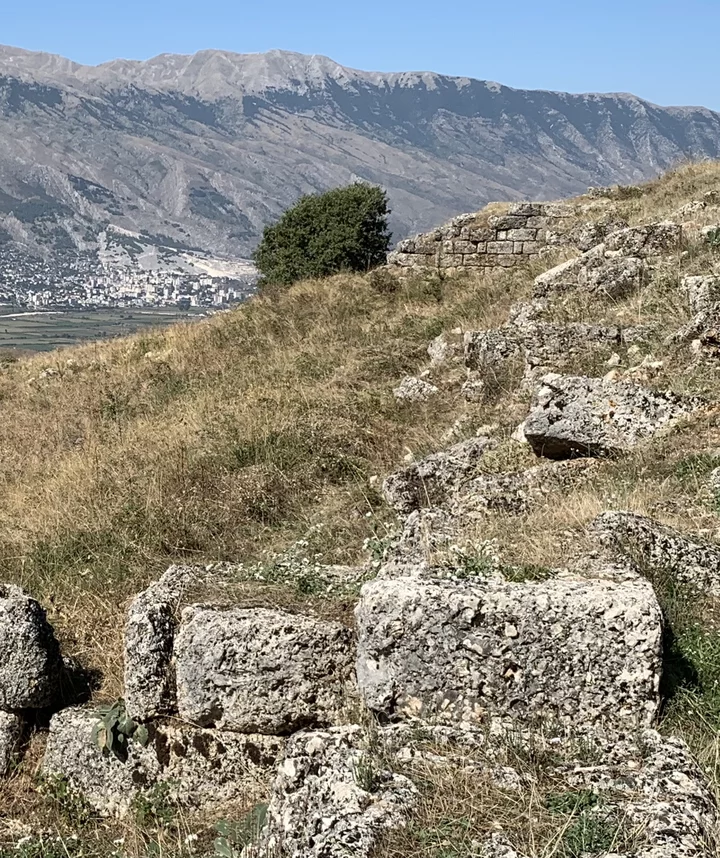I recently spent a morning exploring the ruins of an ancient city that goes by the unlikely name of Antigonea. Situated in southern Albania near the border with Greece, on a hillside above the fertile Drinos river valley, Antigonea was, in its time, the short-lived capital of the long-lost state of Chaonia. It was founded by the Greek King Pyrrhus of Epirus (319-272 BC) whose several victories against the armies of early Rome were so costly that his name lives on in the phrase “Pyrrhic Victory” — a win that comes with heavy losses.

Naples National Archaeological Museum, CC BY 2.5, via Wikimedia Commons.
Queen Antigone
Pyrrhus became king of Epirus at age 13, but was deposed four years later. Subsequently he was sent to the court of Ptolemy I in Egypt, one of Alexander the Great’s four generals who divided up his empire after his death. (The Macedonian Ptolemaic dynasty ended with the death of Cleopatra 275 years later.) According to Greek historian Plutarch, Pyrrhus “was artful to absorb powerful people and to hate cowards, while being gentle in life.” So much so, apparently, that Ptolemy married him off to his step-daughter Antigone.
Antigone, now Queen of Epirus as well as being linked to the Ptolemaic dynasty, would bear Pyrrhus two children, but died the same year as the second one was born, probably in childbirth, a common occurrence then (and right up to the 19th century). In her honor, Pyrrhus named the city which he founded “Antigonea.”
Less than two hundred years later, Roman legions defeated the forces of Philip V, King of Macedonia, in a battle fought near Antigonea. Although the citizens of the city were neutral, a Roman general took revenge on 70 cities of Epirus by destroying them in 167 BC, enslaving their populations. In the ruins of Antigonea, archeologists have found a thick layer of black ash, evidence that the city was one of those razed to the ground. Thus ended the life of what had been a major economic and cultural center within the sphere of ancient Greece.
The Myth of Antigone
Pyhrrus’ wife, step-daughter of the first of the Ptolemy’s, is named after the heroine who first appears in the plays of the Greek playwright Sophocles around 441 BC. Antigone, the play, is one of a triad of his “Theban” tragedies, the others being Oedipus Rex and Oedipus at Colonus.
Antigone was the sister of two brothers, sons of Oedipus, who died fighting each other in a civil war. Creon, their uncle and new ruler, proclaims that one is to be honored with a state funeral, while the other will lie, unsanctified, on the battle field, to be eaten by wild animals.
Antigone will have none of this, and starts to give her brother a proper funeral, insisting to Creon (after she’s caught) that she is obeying a divine law which takes precedence over any law he makes.
It all ends in tragedy: before suffering her fate of being walled up in a cave , Antigone hangs herself, while her finance, Creon’s son, also commits suicide, as does Creon’s wife.
Creon, his spirit broken, finally regrets all the disaster he has caused. The last appearance of the chorus ties the whole mess together: Although the gods punish the proud, with punishment comes wisdom. And we’re left with a huge respect for Antigone, who listened to her own conscience rather than the king’s edict. So Antigone — Pyrrhus’ wife — bore one of the most honored names in ancient Greece.
Antigonea
The city is strategically sited, on a plateau overlooking the Drinos valley, about 40 minutes drive on windy one-lane road from Gjirokastra, Albania. The latter is now a tourist destination with its 13th century castle and old bazaar. (Not that old, if we’re being honest — most of the bazaar area was destroyed by fire 100-odd years ago.) I was the only visitor, although two archeological teams were at work, unshaded, in the 92-degree heat. I wandered from one end of the site to the other, marveling at what remains of two miles of limestone block defensive walls, originally 20 feet high.
Even in ruins, Antigonea today is a worthy tribute to a queen who lived over two millennia ago, and to the mythical heroine for whom she was named.



CLICK TO MANAGE